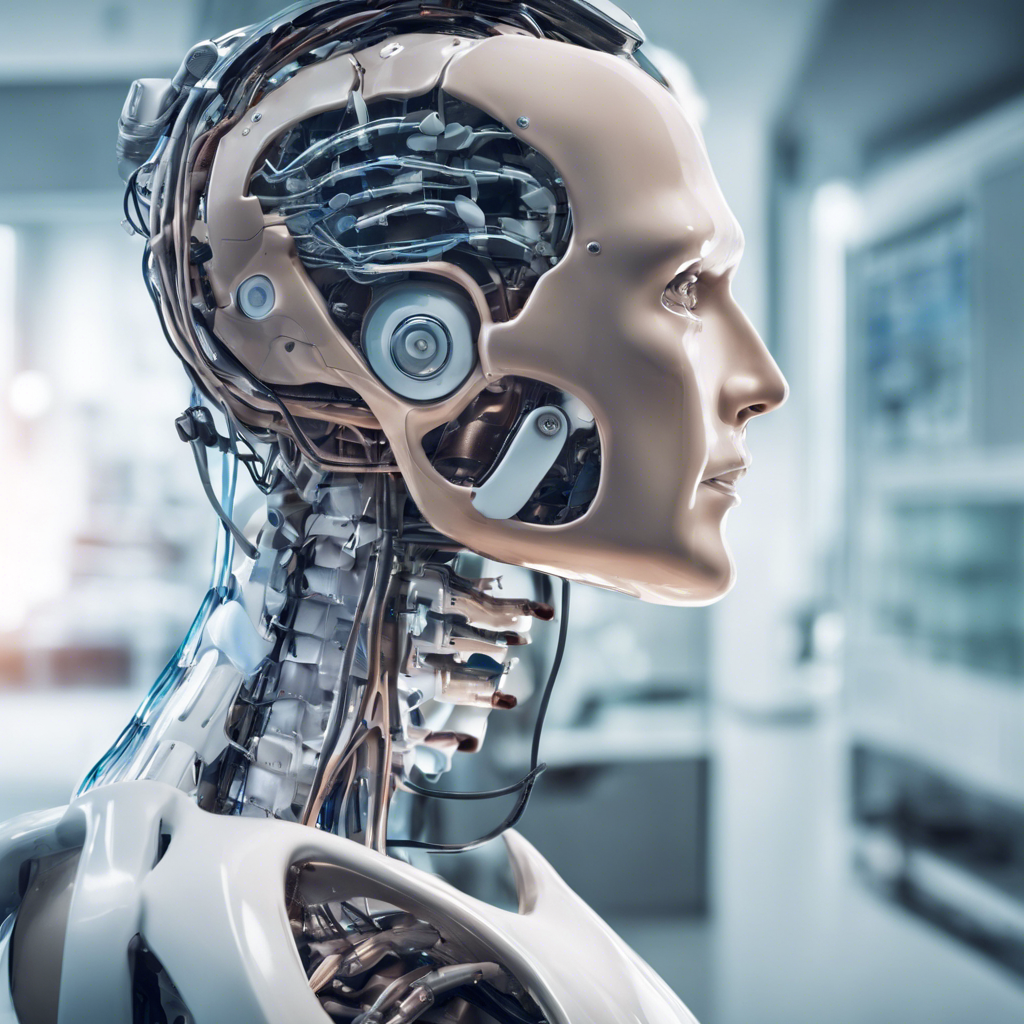The Rise of Artificial Intelligence in Healthcare

How AI is Revolutionizing the Medical Industry
In recent years, artificial intelligence (AI) has emerged as a powerful tool in various industries. From self-driving cars to virtual assistants, AI has permeated our daily lives. One area where AI is making significant strides is healthcare. With its ability to analyze vast amounts of data and identify patterns, AI is revolutionizing the medical industry. In this article, we will explore the various ways in which AI is being used in healthcare, its benefits, and the potential challenges it poses.
1: Diagnosing Diseases with Unparalleled Accuracy
AI is transforming the way diseases are diagnosed. Machine learning algorithms can analyze medical images, such as X-rays and MRIs, with remarkable accuracy. In fact, studies have shown that AI algorithms can detect certain diseases, including cancer, with higher precision than human doctors. This not only saves time but also reduces the risk of misdiagnosis. AI-powered diagnostic tools have the potential to improve patient outcomes and save lives.
2: Personalized Treatment Plans
Another area where AI is making a significant impact is in the development of personalized treatment plans. By analyzing large datasets of patient records, AI algorithms can identify patterns and predict how patients will respond to different treatments. This allows doctors to tailor treatment plans to individual patients, increasing the chances of successful outcomes. AI can also help identify potential drug interactions and adverse reactions, improving patient safety.
3: Enhancing Surgical Procedures
AI is also being used to enhance surgical procedures. Robotic-assisted surgeries, guided by AI algorithms, offer greater precision and accuracy compared to traditional methods. Surgeons can use AI-powered tools to plan surgeries, simulate procedures, and navigate complex anatomical structures. These advancements reduce the risk of complications, shorten recovery times, and improve patient satisfaction.
4: Improving Patient Monitoring and Care
AI is transforming patient monitoring and care. Wearable devices equipped with AI algorithms can continuously monitor vital signs, detect early warning signs of deteriorating health, and alert healthcare providers in real-time. This allows for proactive interventions and timely medical attention, potentially preventing adverse events and reducing hospital readmissions. AI-powered chatbots and virtual assistants are also being used to provide personalized healthcare advice and support to patients, improving access to care and patient engagement.
5: Ethical Considerations and Challenges
While the potential benefits of AI in healthcare are undeniable, there are ethical considerations and challenges that need to be addressed. Ensuring patient privacy and data security is paramount. Additionally, the reliance on AI algorithms raises concerns about bias and transparency. It is crucial to develop robust regulations and guidelines to govern the use of AI in healthcare and to ensure that AI systems are accountable and transparent.
Conclusion:
Artificial intelligence is revolutionizing the healthcare industry, offering unprecedented opportunities for accurate diagnosis, personalized treatment plans, enhanced surgical procedures, and improved patient monitoring and care. While there are ethical considerations and challenges to overcome, the potential benefits of AI in healthcare are immense. As AI continues to evolve, it is crucial for policymakers, healthcare providers, and technology developers to collaborate and navigate the ethical and regulatory landscape to harness the full potential of AI and improve healthcare outcomes for all.

